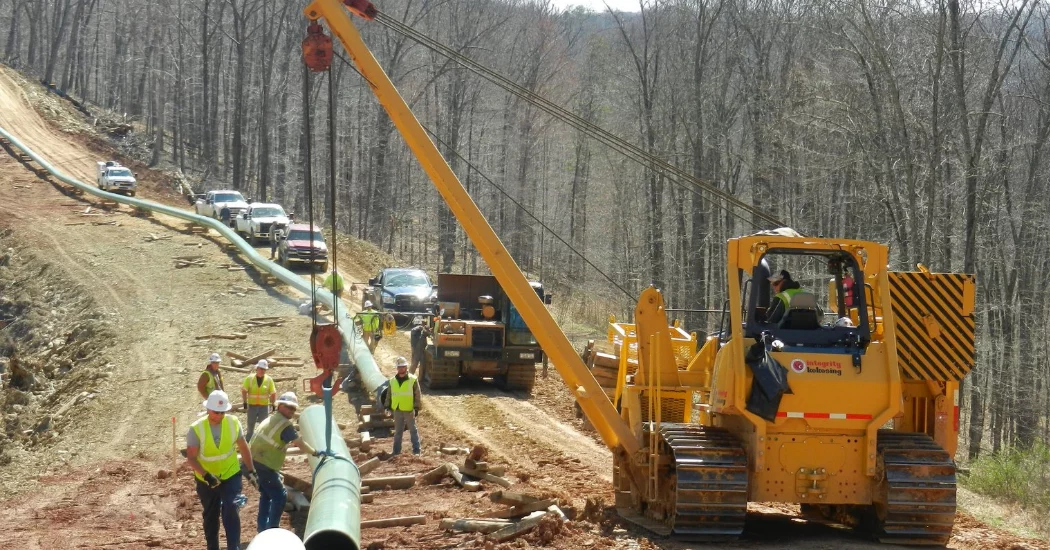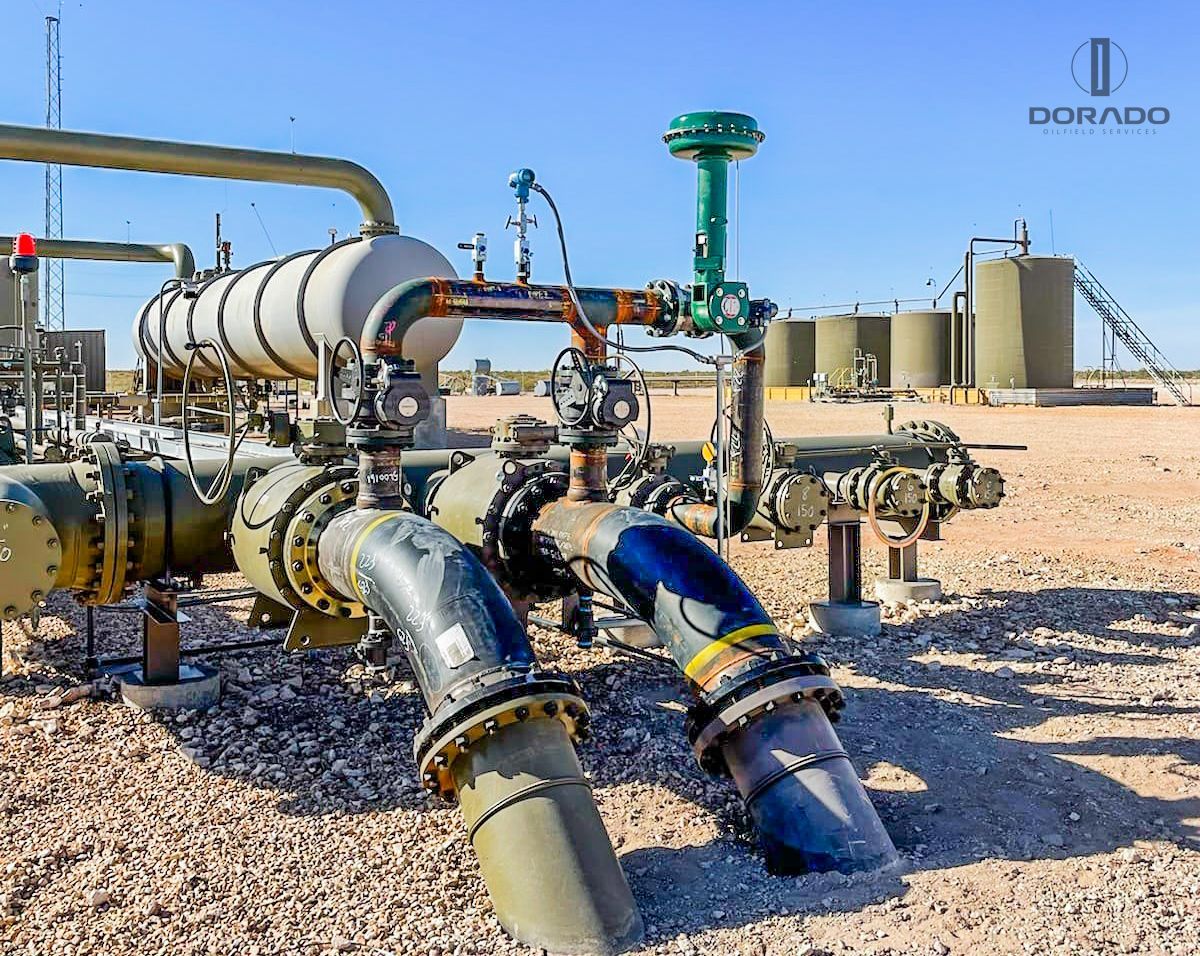The Crucial Overview to Understanding Pipeline Construction Services and Their Significance
Pipeline Construction services are essential to the transportation of important sources such as oil, gas, and water. These solutions include meticulous planning and execution, sticking to rigid security and environmental requirements. As the sector adapts to modern obstacles, understanding its elements and implications becomes progressively crucial. What variables add to the growing significance of these services in today's economic situation? The following areas will certainly explore these critical aspects.
Introduction of Pipeline Construction Providers
Pipeline Construction solutions include an array of activities crucial for the setup and upkeep of pipes made use of to deliver different compounds, consisting of gas, oil, and water. These services are critical for assuring the secure and effective motion of resources from one location to an additional. The process commonly starts with thorough planning and layout, which takes into account regulatory demands, ecological considerations, and logistical difficulties.
When planning is total, excavation and grading of the land are carried out to prepare the website for Pipeline installation. This is followed by the real laying of the pipelines, which includes welding or signing up with areas with each other to create a constant circulation path. After installation, extensive testing is carried out to guarantee stability and safety. Maintenance services are also supplied to resolve any type of issues that might occur over time. In general, Pipeline Construction solutions play a critical duty in sustaining infrastructure for energy and water circulation.
Trick Parts of Pipeline Construction
An effective Pipeline Construction job counts on a number of crucial parts that ensure the risk-free and reliable installation of the Pipeline system. First, detailed site assessments are important, as they identify the geographical and environmental aspects that may influence Construction. Next, the selection of proper products, such as pipes and fittings, is crucial for safeguarding resilience and compatibility with the transported compounds.
Additionally, advanced Construction techniques, consisting of trenchless technology and directional boring, improve effectiveness and reduce ecological influence. Reliable job management is one more essential part, coordinating labor, devices, and timelines to satisfy project objectives.
In addition, interaction amongst stakeholders, including designers, specialists, and neighborhood authorities, assurances alignment on job specifications and needs. Lastly, comprehensive quality assurance procedures throughout the Construction process make certain conformity with industry criteria and maximize the Pipeline's functional lifespan. Collectively, these elements form the foundation of an effective Pipeline Construction project.
Safety Criteria and Regulations in Pipeline Construction

Regulatory bodies, such as the Occupational Safety And Security and Wellness Management (OSHA) and the Pipeline and Hazardous Products Safety Management (PHMSA), set forth particular requirements that govern Construction methods. These consist of procedures for equipment use, worker training, and emergency situation response procedures. By executing these criteria, Construction companies not just shield their workers however additionally safe and secure public trust fund. Inevitably, extensive safety and security procedures add to the long-lasting success of Pipeline projects, ensuring they satisfy both ecological and operational assumptions.
Ecological Considerations in Pipeline Projects

Ecological considerations are important to the planning and implementation of Pipeline projects. These jobs must examine potential effect on communities, water resources, and local wild animals. Carrying out thorough environmental impact analyses (EIAs) is essential, allowing stakeholders to determine and alleviate risks prior to Construction starts.
Safeguarding sensitive areas, such as wetlands and habitats, typically calls for executing details design features or alternate directing to minimize interruption. Additionally, Pipeline operators are tasked with developing strategies for stopping leaks and spills, which can have disastrous impacts on the environment.
Interaction with local neighborhoods is important, as public problems can lead to job modifications that improve ecological defense. Conformity with guidelines set by ecological companies ensures that projects meet sustainability criteria, promoting a balance between facilities requirements and ecological preservation. Ultimately, dealing with environmental factors to consider not only safeguards nature however likewise advertises area trust and project practicality.
The Function of Innovation in Pipeline Construction
Innovation plays a crucial function in contemporary Pipeline Construction, improving effectiveness and accuracy. Advanced surveying techniques enable accurate planning and execution, minimizing ecological influence and task hold-ups. Furthermore, the combination of automation and robotics improves operations, this link lowering labor prices and enhancing security on Construction sites.
Advanced Checking Techniques
Advanced evaluating strategies play a crucial function in the successful execution of Pipeline Construction projects. These approaches utilize innovative technology to assure exact mapping and analysis of the surface where pipelines will be mounted. Methods such as Geographic Information Equipment (GIS), LiDAR (Light Discovery and Ranging), and 3D modeling enable designers to picture and evaluate the landscape, determining prospective obstacles and ecological issues. By utilizing these innovative devices, teams can boost precision ready and positioning, greatly lowering the danger of errors throughout Construction. In addition, real-time information collection enables immediate changes and educated decision-making throughout the project lifecycle. Ultimately, these surveying innovations add to enhanced efficiency, safety and security, and sustainability in Pipeline Construction efforts.
Automation and Robotics

Economic Influence of Pipeline Infrastructure
Pipeline facilities plays an important duty in shaping regional economic situations and helping with profession. By offering a trusted means of delivering oil, gas, and various other commodities, pipelines minimize transport costs and improve supply chain effectiveness. This framework attracts investment, promotes work creation, and fosters economic growth in surrounding locations.
The Construction and maintenance of pipelines contribute significantly to regional economic situations, creating various employment chances in numerous fields, from engineering to labor. The influx of tasks usually results in increased costs in regional services, additionally boosting economic activity.
Additionally, pipelines boost power protection by making certain a steady supply Continue of resources, which is essential for domestic needs and commercial procedures. As areas end up being interconnected through Pipeline networks, they access to more comprehensive markets, boosting competition and economic strength. As a result, the financial effect of Pipeline facilities is complex, influencing both immediate local economic climates and broader local growth.
Future Trends in Pipeline Construction Providers
The future of Pipeline Construction solutions is developing in feedback to technical developments, regulatory adjustments, and growing ecological considerations. Technologies such as drones and robotics are streamlining assessment and maintenance procedures, enhancing security and performance. Automation is poised to lower labor expenses and increase accuracy in Construction operations. Furthermore, the enhancing focus on sustainability is triggering firms to embrace eco-friendly products and practices, straightening with global efforts to lower carbon footprints.
Regulative frameworks are likewise adjusting to address ecological influences, promoting higher openness and accountability in Pipeline jobs. The integration of wise modern technologies, including real-time tracking systems, is anticipated to boost the reliability and efficiency of Pipeline networks. As power demands change towards renewable sources, Pipeline Construction solutions will likely see a rise in jobs associated with biofuels and hydrogen transportation. In general, these patterns show a transformative period for the Pipeline Construction sector, concentrated on development and sustainability.
Often Asked Inquiries
What Sorts of Pipelines Are Generally Constructed?
Numerous kinds of pipes are frequently created, consisting of oil, gas, water, and sewer pipes - Pipeline Construction Services. Each offers distinctive functions, facilitating the transportation of essential sources throughout regions while sticking to security and environmental policies
For how long Does a Regular Pipeline Project Take?
The duration of a regular Pipeline job differs considerably, usually ranging from several months to a couple of years. Variables affecting this timeline include task intricacy, regulative approvals, and ecological factors to consider that should be dealt with.
That Controls Pipeline Construction Companies?
Pipeline Construction firms are managed by different government, state, and regional agencies, consisting of the Pipeline and Hazardous Materials Safety Management (PHMSA) and state public utility payments, making sure compliance with safety and security and ecological standards throughout the Construction procedure.
What Are Typical Products Utilized in Pipeline Construction?
Common products used in Pipeline Construction consist of pvc, steel, and polyethylene. Each material supplies unique benefits such as resistance, versatility, and toughness to corrosion, making them appropriate for numerous applications in carrying liquids and gases.

Exactly How Are Pipeline Construction Expenses Estimated?
Pipeline Construction costs are approximated by examining factors such as material expenditures, labor prices, job complexity, ecological considerations, and regulatory needs (Pipeline Construction Services). Precise cost estimate warranties efficient budgeting and project preparation throughout the Construction process
Pipeline Construction solutions include a range of tasks crucial for the setup and maintenance of pipes made use of to carry various compounds, including gas, water, and oil. A successful Pipeline Construction job relies on numerous key parts that guarantee the secure and efficient installment of the Pipeline system. Advanced checking strategies play a necessary role in the effective execution of Pipeline Construction jobs. Numerous types of pipes are commonly built, consisting of oil, sewage, gas, and water pipes. Pipeline Construction prices are estimated by assessing factors such as product expenditures, labor rates, job intricacy, environmental considerations, and regulative needs.